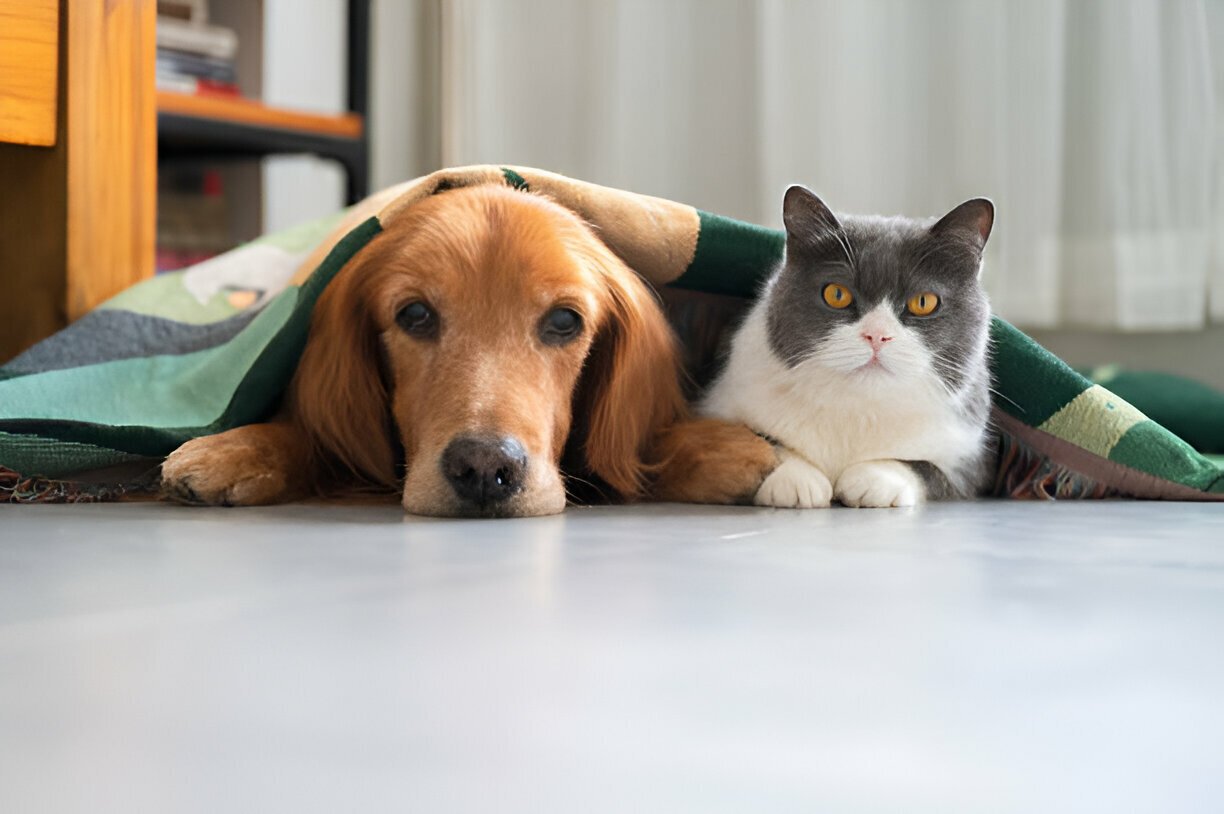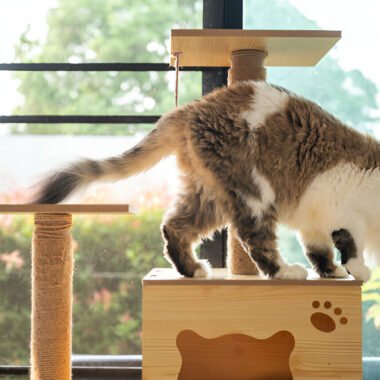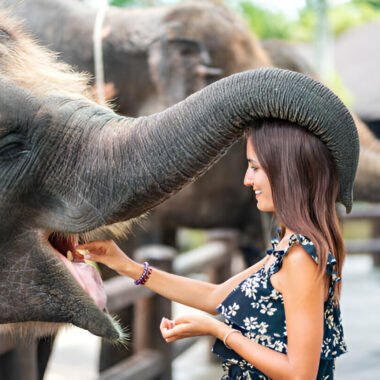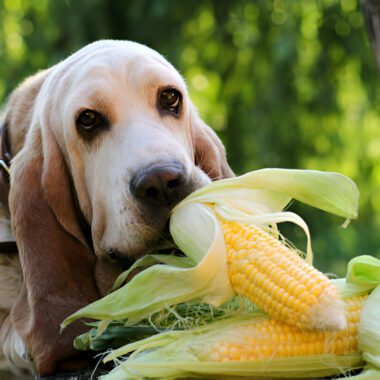Table of Contents
Introduction of raising cats & dogs
Owning a pet can be a deeply rewarding experience, but choosing the right type of pet to bring into your home requires careful consideration. Dogs and cats are among the most popular choices for household pets, each offering their own unique set of characteristics and challenges. In this article, we’ll explore the key differences between raising dogs and cats, from their lifespan and training needs to their grooming requirements and emotional companionship.
Lifespan and Commitment
Dogs typically have a shorter lifespan compared to cats, with most large breeds living around 10-12 years, while smaller breeds may live up to 15 years or more. Cats, on the other hand, often live into their late teens or early twenties, making them a longer-term commitment for pet owners.
Training and Socialization
One of the biggest differences between dogs and cats is their need for training and socialization. Dogs are highly trainable animals that thrive on structure and routine. They require consistent training from an early age to learn basic obedience commands and proper behavior. Socialization is also crucial for dogs to develop good manners and to feel comfortable around other animals and people.
Cats, on the other hand, are more independent by nature and may not require as much formal training. While it’s still important to teach cats basic behaviors like using a litter box and scratching posts, they are generally more self-sufficient and may not need as much hands-on training as dogs.

Feeding and Nutrition
Dogs and cats have different dietary needs, which is important for pet owners to consider when choosing food for their pets. Dogs are omnivores and require a balanced diet that includes protein, carbohydrates, fats, vitamins, and minerals. They may also have specific dietary requirements based on their breed, age, and activity level.
Cats are obligate carnivores, meaning that they require a diet that is primarily composed of animal protein. They have higher protein and fat requirements compared to dogs and may suffer from nutritional deficiencies if fed a diet that is not appropriate for their species.
Exercise and Activity Levels
Exercise requirements vary between dogs and cats based on factors such as breed, age, and health status. Dogs are generally more active animals that require regular exercise to maintain their physical and mental well-being. Depending on the breed, dogs may need anywhere from 30 minutes to several hours of exercise each day.
Cats are known for their independent nature and may not require as much structured exercise as dogs. However, it’s still important to provide cats with opportunities for play and physical activity to prevent obesity and promote overall health.
Grooming and Maintenance
Both dogs and cats require regular grooming to keep their coats healthy and free of mats and tangles. However, the amount of grooming required can vary greatly between the two species. Dogs with long or thick coats may need daily brushing to prevent matting and shedding, while short-haired breeds may only need weekly grooming.
Cats are typically fastidious groomers and may spend several hours each day grooming themselves. However, they may still benefit from occasional brushing to remove loose hair and reduce shedding.
Affection and Independence
Dogs are known for their loyal and affectionate nature, often forming strong bonds with their human companions. They thrive on attention and may become anxious or depressed if left alone for long periods of time. Dogs are also highly social animals that enjoy interacting with other dogs and people.
Cats, on the other hand, are more independent by nature and may not require as much attention or affection from their owners. While cats can form close bonds with their human companions, they are also content to spend time alone and may not seek out social interaction as much as dogs.
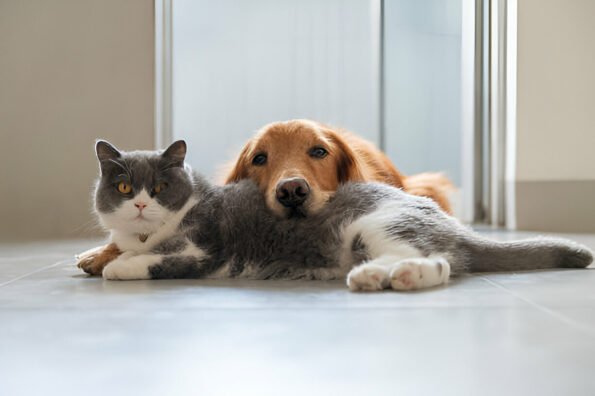
Living Space and Environment
When considering whether to get a dog or a cat, it’s important to think about your living space and the environment in which you’ll be keeping your pet. Dogs require more space to roam and play, especially larger breeds that need room to run and exercise. They may not be well-suited to apartment living unless they have access to outdoor areas for exercise and play.
Cats are more adaptable to different living environments and can thrive in smaller spaces like apartments or condos. They are also generally less disruptive than dogs and may be a better choice for people who live in close quarters or have limited outdoor space.
Health Care and Veterinary Needs
Both dogs and cats require regular veterinary care to maintain their health and well-being. This includes vaccinations, parasite prevention, dental care, and routine check-ups. Dogs may also require additional preventive care such as heartworm prevention and flea and tick control.
Cost of Ownership
The cost of owning a pet can vary depending on factors such as breed, size, age, and health status. Dogs are often more expensive to care for than cats due to their larger size and higher food and veterinary costs. In addition to routine veterinary care, dog owners may also need to budget for expenses such as grooming, training, and pet insurance.
Compatibility with Different Lifestyles
When deciding between a dog and a cat, it’s important to consider how each pet will fit into your lifestyle and daily routine. Dogs require more time and attention from their owners, including daily walks, playtime, and training sessions. They may not be suitable for people with busy schedules or those who travel frequently.
Cats are more independent and can adapt to a variety of lifestyles, making them a great choice for people with busy schedules or limited time for pet care. They are also generally low-maintenance pets that can be left alone for longer periods of time without becoming stressed or anxious.
Emotional Support and Companionship
Both dogs and cats can provide emotional support and companionship to their owners, but they may express their affection in different ways. Dogs are known for their unconditional love and loyalty, often forming deep bonds with their human companions. They can provide comfort and companionship during difficult times and are always there to greet you with a wagging tail and a happy smile.
Cats are more independent by nature and may not seek out as much attention or affection from their owners. However, they can still form close bonds with their human companions and provide emotional support in their own unique way. Whether it’s curling up on your lap for a nap or rubbing against your legs for attention, cats have a special way of making their presence known and bringing joy to your life.

Challenges and Rewards
Owning a pet comes with its own set of challenges and rewards, whether you choose a dog or a cat. Dogs require more time and effort from their owners, including daily exercise, training, and grooming. They also have higher energy levels and may require more attention and supervision, especially during their younger years.
Cats are generally lower-maintenance pets that require less time and attention from their owners. However, they can still present their own challenges, such as litter box issues, scratching furniture, and hairballs. Despite these challenges, the rewards of pet ownership far outweigh the drawbacks and the unconditional love and companionship that dogs and cats provide make it all worthwhile.
Conclusion of Raising Cats & dogs
In conclusion, the difference between raising dogs and cats lies in their individual characteristics, behaviors, and needs. While dogs are known for their loyalty, affection, and high energy levels, cats are valued for their independence, low maintenance, and unique personalities. Ultimately, the decision to get a dog or a cat depends on your personal preferences, lifestyle, and ability to meet the needs of your chosen pet.

